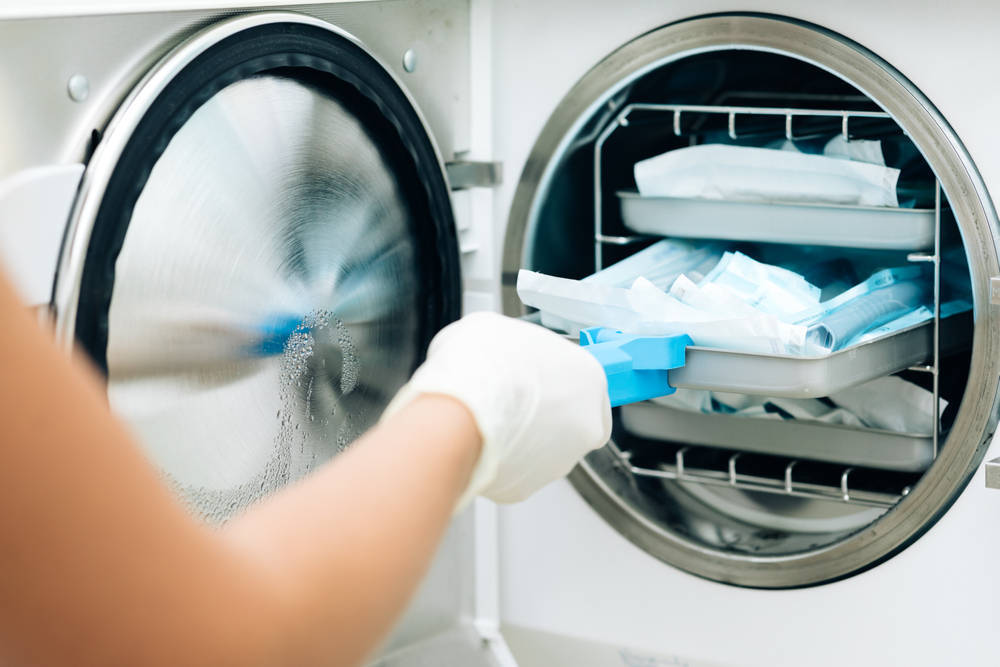Introduction
The medical field is populated by sterile processing technician who collaborates with other techs to sterilize, pack and distribute drugs. They make sure that medications and other sterile products are stored correctly, properly packaged, and dispensable by adhering to all procedures. According to Indeed.com, sterile processing technicians can earn as much as $43k annually and make an average of around $30K per year.
What is a Sterile Processing Technician?
A Sterile processor technician is a medical technologist who designs and manufactures equipment for surgical and other medical procedures.
Sterile processing technicians are responsible for maintaining the stabilizability of surgical instruments such as scissors and scalpels by cleaning them with disinfectant solutions before sterilization. They must also monitor the prepared materials so they’re not contaminated by viruses or bacteria that could cause an infection if exposed to the air for long enough.
How Much Sterile Processing Technicians Earn?
The average wage for a sterile processing technician comes to $19.69 per hour, according to Indeed.com. That means you can earn anywhere from $27K-$31K per year, based on your hours and expertise level.
You can increase your income as a technician for sterile processing by working for a larger company with more clients, which also offers opportunities for training. This will improve your chances of getting promoted within the organization or to a different department that offers more growth opportunities (such as customer service).
How to become a Sterile Processing Technician: Educational and Training Requirements
To become a sterile processing technician, you’ll have to adhere to the educational and training requirements of the healthcare facilities in your state.
- Training: Most states require applicants to complete an approved training course before being certified as a sterile processing technologist. These training programs usually last 1 year and provide the classroom teaching of medical terminology and anatomy, physiology, microbiology, and other fields related to the field.
- Education is a part of the certification process for becoming a sterile processing technician in every state where it is required (this differs from state to state); applicants must be able to pass written exams that cover the subjects taught in the classroom portion of their studies.
The Sterile Processing Technician’s Certifications and Licensures
There are many certifications for technicians working in sterile processes. There are many certifications provided by the Association for the Advancement of Medical Instrumentation and including:
- Certified Professional surgical technician (CPSC–SCT)
- Certified Operating Room Assistant (COOR)
- Certified Operating Room Specialist (CORS)
You must attend an educational session and then take written and practical tests to earn your certification. The best way to get certified is to simultaneously pass the written and practical tests. But you’ll lose your certification status permanently when you fail any of these exams for more than five years. This isn’t necessarily a bad thing. It just means there’s the pressure to reach this goal before it is taken away!
Sterile Processing Technician Career Outlook

The sector of sterile processing technicians is increasing. According to the U.S. Bureau of Labor Statistics, There will be an additional 17,600 sterile process technicians in 2026 (an increase of 76%). The BLS also estimates that these positions will earn around $36/hour or higher based on your location and level of experience; However, this could vary depending on the location and organization you work for.
There are many options to become a technician in sterilizing processing.
- Take classes at an accredited school like [https://www.youtube.com/watch?v=7C4t-4YV7wQ. You can even get paid while in college!
- When you are an apprentice, you will work with someone who has been trained or has a thorough understanding of how it works. This allows you to teach them how it works before their departure. It also means that more money goes into your account monthly instead of rent.
Becoming a sterile processing technician is a fantastic way to enter the medical field.
You’ll work in a hospital setting as a sterile processor technician. You can use your skills in various environments and interact with different types of people. If you’ve got the right training and certificate, it’s impossible to predict what job security you’ll get!
Conclusion
A sterile processing technician could be a great way to enter the field of medicine. It’s a great way to earn money while still at school since it covers all the essential training and certification requirements.
Martinson College was established to be a vital element of the industry’s ongoing struggle to improve the standards of Central Services and Sterile Processing Departments (CS/SPD) in healthcare institutions across the globe, particularly in the United States. Our objective is to educate the community about the necessity of reusable medical device sterilization, decontamination, and reprocessing.
Read More: 5 Ways to Look After Your Mental Well-Being During a Pandemic